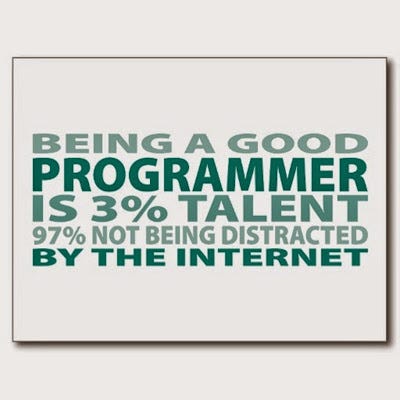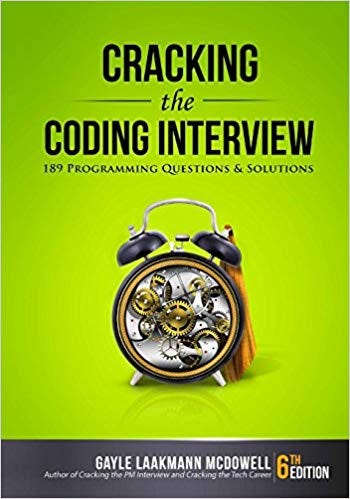Latest news about Bitcoin and all cryptocurrencies. Your daily crypto news habit.
 “Two men working back-to-back outside with a brick wall background” by rawpixel on Unsplash
“Two men working back-to-back outside with a brick wall background” by rawpixel on Unsplash
When it comes to interviewing programmers and developers, our goal is to find the most suitable developer for the job to get done but its very difficult to judge someone’s caliber, experience, and expertise in the short duration of Interview.
I know, There is a process starting from phone interview, written tests, to face-to-face interview, but its still very difficult to hire to find a good programmer.
Process can help you to filter candidates but eventually it will come down to your experience and gut feeling to find good programmers.
As you take more and more interviews, you will know what to ask and what not to ask and like many other interviewers in the world, you will develop some of your own tips to find right candidates.
Similarly, I have also learned a couple of tips from my experience of interviewing many programmers which has helped me to differentiate between an average programmer with a good programmer in the past.
Today I would like to share one of such tips with you guys, to see if you agree with my observation or there is a flaw in my understanding, and hopefully I can learn a couple of more tips from you guys to find right some good programmers in future.
One of my most used tip is finding gaps in requirement. I have found and learnt it over the time that good developers has a knack of breaking requirements into pieces and finding gaps, which is very important to produce a quality software.
Though this skill mostly comes with experience, a good developer even with less experience has this ability.
In this article, I will share a an interview scenario to check what an average and a good programmer will produce given the same requirement.
This is an hypothetical interview to demonstrate my tip, but its very close to the real interview.
You can change the requirement based upon your domain, candidates experience and his domain expertise and job description. Key is to give one line requirement to candidate and compare the quality of program developed by multiple programmers.
In this scenario, I have used a very general requirement, which doesn’t need any domain expertise e.g. finance, healthcare or manufacturing, but require some programming experience.
Interviewer : Can you write a script to archive files older than 30 days and which can be run on 1st day of month using cron job?
Programmer 1 went on to code immediately and produced a script which does exactly what is in requirement.
His script can find all files in a directory provided as input, can create archive in the same directory with provided name and backup date as suffix.
Looks good right?
But hold on something is missing :
- He did not excluded archive files created by script itself, which means in next month script will also include last month’s archive. If you are not monitoring, you will only realize this problem when you need to retrieve something from archive.
- He did not think about two contradicting part in this script, finding files older than 30 days and running it on 1st of every month. Since script’s objective here is to backup last month’s data and month can be any of 28, 29, 30 or 31 days. So if you run this script on 1st march, it will not archive any files because all of them are less than 30 days old because February is usually 28 day long.
- His script was not removing files after archiving. Though this was not stated as part of requirement, its an implicit requirement, until interviewer specifically mentioned not to do so.
I agree, he shouldn’t assume anything but atleast he should clarified that with the interviewer. Even if he bring this point, I would have a given him a brownie point for understanding the job in hand and bringing things which even user has not thought about it at the time.
This is the key difference difference between a good programmer and an average programmer.
These are just some of examples of missing requirements but this case is quite common in real world programming.
Many users gives requirement like this and experienced programmer know that “devil is always in details”. Before doing anything, first step is to understand the purpose and then think what is missing.
Just like when you go to doctor and says that you have some problem, he asks couple of questions to better understand the problem, you should always ask questions to clear doubts, let user know what is missing etc.
Being an expert in the area of software development its your responsibility to get enough details so that product meets user expectation and can withstand test of time.
I like to ask this kind of question which is not very domain specific and very general in nature. This not only gives an opportunity to gauge candidate’s expertise on a any particular technology e.g. Perl, Python, or Bash script but also his overall thinking process.
Any developer, who can think through and find gaps in requirement is going to be an asset for team. BTW, like all the things this is not always the case and its not a hard and fast rule, It’s just another indicator, which can potentially help you to find good programmers.
Here are couple of more examples to differentiate between an average programmer and good programmer.
One of the interesting task is to ask developer to write code to read a file, a good programmer always ask questions about file content e.g. binary or text.
If text then what is the encoding, while an average developer just write the code to read a file.
A good developer will make sure to close streams in the right way and release file descriptors (resources) while an average programmer will generally forget about that.
For developers and programmers, if you get these kind of questions, where Interviewer ask you to do a real job, consider understanding requirement better and asking right questions.
Like in our previous question, you could have ask about all those missing requirement which surface when you start using your script.
Needless to mention that second programmer ( good programmer) was bit more intelligent and practical and was able to fill some of those gaps.
This tip has helped me in past but its not hard and fast rule to find good developers, in fact there is no rule to find them.
You just have to work through some indicator and your gut feeling. Let me know what are the tips you guys are using to find good programmers on interviews.
Here are couple of more question for your practice :
1) Write a wordwrap() function, which can take a String and break it based on screen size?
This was a real Java ME interview question, which I have faced when mobile devices are very small and don’t have enough API support.
Since mobile phones or smart phones has varied screen sizes, wrapping words based upon screen size was a common task.
Though not stated, goal here is to make this function work for every device. Function should consider line breaks, white spaces, font sizes etc.
You can now use this question for Android and iOS interview, as smartphone sizes are still not uniform.
2) Write a function to replace a given character from an String in Java?
This is rather a simple question but ask him to write a production like code and then see if candidate takes care of obvious things like null string, empty string, String contains all character which is there to replace etc, here is the sample solution of this problem.
Here are some more popular Coding questions you can use:
3) Find duplicates in an array which contains more than one duplicates? (solution)
4) How to Check if a String is rotation of another given String? (solution)
5) How to design a Vending Machine? (solution)
If you need more questions or if you are a programmer preparing for interviews, You can check out the Coding Interview BootCamp course or Gayle Laakmann McDowell’s classic Cracking the Coding Interview book, one of my personal favorite for quick review and initial screening of candidates.
That’s all about this tip to differentiate an average programmer with a good programmer. As I said this is just one of the several points many Interviewer looks on a candidate, For programmers It’s an opportunity to show their think through ability and how good they are in understanding requirements and finding gaps.
P.S. — If you want to become a good programmer, don’t forget to read these 10 tips and these 10 articles, which I think every programmer should read.
Originally published at javarevisited.blogspot.com.
Good Programmer vs Average Programmer was originally published in Hacker Noon on Medium, where people are continuing the conversation by highlighting and responding to this story.
Disclaimer
The views and opinions expressed in this article are solely those of the authors and do not reflect the views of Bitcoin Insider. Every investment and trading move involves risk - this is especially true for cryptocurrencies given their volatility. We strongly advise our readers to conduct their own research when making a decision.

